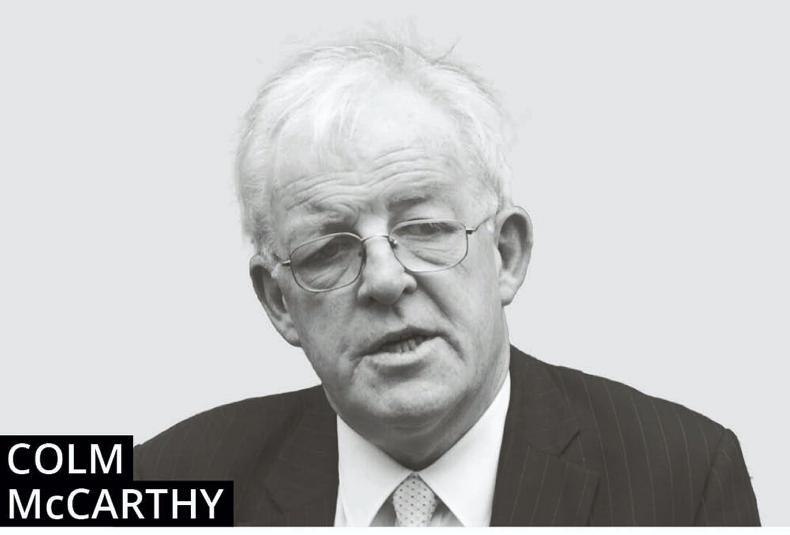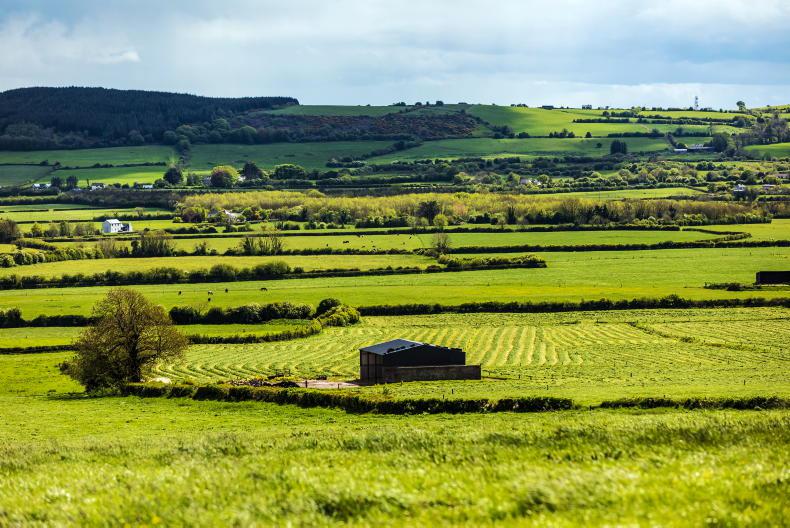It’s not easy to make big changes to the way a country functions overnight, as the United Kingdom is due to discover at 11pm on 29 March next, unless there is an orderly withdrawal from the European Union. A no-deal Brexit means instant dislocation to everyday life, including the food import and export trade, airline flights and the supply of medicines. If there is no withdrawal agreement, a condition for securing a post-Brexit standstill on current arrangements, wholesale chaos may ensue.
Various countries have adapted easily over the years to EU entry: it has involved a gradual and fully negotiated dismantling of barriers to trade and travel, a very different proposition to suddenly imposing barriers where, for decades, there had been none.
Indeed it is difficult to find a precedent for what 29 March might look like, since no member country has ever withdrawn from the EU. Greenland, with a population of 56,000 and now an autonomous overseas territory of Denmark, changed status (it had been a Danish county) and consequently departed the EU in 1985. No disrespect to Greenland, but this is hardly a useful rehearsal.
Disruptive change
The closest to the disruptive change the UK would face is
perhaps the decision in Sweden back in 1967 when the country switched to driving on the right – Sweden had been the only country in continental Europe that drove on the left. Neighbours Denmark, Norway and Finland, as well as the other export markets for Saab and Volvo, all drove on the right. The Swedes had debated the change for many years and it was not popular with everyone.
Mayhem was predicted but there was none. Traffic was closed down one Sunday until 5pm and resumed, on the unfamiliar side of the road, with severe speed limits and not too much trouble. Road accidents actually fell for a while – people got cautious – but unfortunately returned to normal in due course.
The Swedes took the changeover very seriously indeed. Every road junction in the country was mapped and surveyed, every traffic light replaced and re-oriented for switch-on day, every police officer trained and some were even despatched to Norway for practise. The exercise was overseen by a special commission which worked for several years on a public awareness campaign including a national competition for the catchiest changeover song and advertisements on radio and television and on food cartons, plus free t-shirts.
There persists an expectation in London that a no-deal Brexit will somehow be rendered manageable on the day because the disruption would be so painful for everyone that all kinds of side deals will be struck at the last minute. Food standards will be waived, licences extended, trucks will roll and planes will fly. The transition period, denied through the failure to seal the withdrawal agreement, can somehow be magicked up in a late burst of expediency.
If the UK’s counterparty in the negotiations was another sovereign country, perfectly free to change its modus operandi, this might be plausible. But the European Union is not a sovereign country, it is a treaty organisation.
Limitations
It is not legally possible for the UK to do any deals with the EU outside the legal constraints of the treaties. Only a limited range of deals are available once the transition period is over at the end of 2020 and the UK has yet to choose from the menu actually on offer. More importantly, the UK must conclude a withdrawal agreement within a matter of weeks, without which there will be no transition after the end of March 2019. No progress, according to the Taoiseach, has been made on the withdrawal agreement in the last six months and Salzburg has set things back further.
A British delusion which contributed to the dust-up last week is the notion that the individual EU countries can be engaged separately, with a view to future trade arrangements or last-minute deals in preparation for possible problems in March.
But individual countries cannot do trade deals – the UK, in Brexiteer belief, is leaving the EU precisely in order to retrieve its ability to do so. Moreover, any last-minute side-deals will have to be done with same EU which has found the going so tough in concluding the withdrawal agreement that would avoid the need for them.
You have to hand it to the Brits for self-confidence. May repeated her mantra that ‘no-deal is better than a bad deal’ last week after the debacle at the European Council in Salzburg. She appears happy to contemplate a disruptive exit six months from now for which less preparation has been undertaken than the Swedes devoted to moving traffic flows from one side of the road to the other. There is barely enough time left for a song competition.
Read more
No new checks on agri-food exports to the UK in hard Brexit
Could a eurosceptic really help reverse Brexit?
It’s not easy to make big changes to the way a country functions overnight, as the United Kingdom is due to discover at 11pm on 29 March next, unless there is an orderly withdrawal from the European Union. A no-deal Brexit means instant dislocation to everyday life, including the food import and export trade, airline flights and the supply of medicines. If there is no withdrawal agreement, a condition for securing a post-Brexit standstill on current arrangements, wholesale chaos may ensue.
Various countries have adapted easily over the years to EU entry: it has involved a gradual and fully negotiated dismantling of barriers to trade and travel, a very different proposition to suddenly imposing barriers where, for decades, there had been none.
Indeed it is difficult to find a precedent for what 29 March might look like, since no member country has ever withdrawn from the EU. Greenland, with a population of 56,000 and now an autonomous overseas territory of Denmark, changed status (it had been a Danish county) and consequently departed the EU in 1985. No disrespect to Greenland, but this is hardly a useful rehearsal.
Disruptive change
The closest to the disruptive change the UK would face is
perhaps the decision in Sweden back in 1967 when the country switched to driving on the right – Sweden had been the only country in continental Europe that drove on the left. Neighbours Denmark, Norway and Finland, as well as the other export markets for Saab and Volvo, all drove on the right. The Swedes had debated the change for many years and it was not popular with everyone.
Mayhem was predicted but there was none. Traffic was closed down one Sunday until 5pm and resumed, on the unfamiliar side of the road, with severe speed limits and not too much trouble. Road accidents actually fell for a while – people got cautious – but unfortunately returned to normal in due course.
The Swedes took the changeover very seriously indeed. Every road junction in the country was mapped and surveyed, every traffic light replaced and re-oriented for switch-on day, every police officer trained and some were even despatched to Norway for practise. The exercise was overseen by a special commission which worked for several years on a public awareness campaign including a national competition for the catchiest changeover song and advertisements on radio and television and on food cartons, plus free t-shirts.
There persists an expectation in London that a no-deal Brexit will somehow be rendered manageable on the day because the disruption would be so painful for everyone that all kinds of side deals will be struck at the last minute. Food standards will be waived, licences extended, trucks will roll and planes will fly. The transition period, denied through the failure to seal the withdrawal agreement, can somehow be magicked up in a late burst of expediency.
If the UK’s counterparty in the negotiations was another sovereign country, perfectly free to change its modus operandi, this might be plausible. But the European Union is not a sovereign country, it is a treaty organisation.
Limitations
It is not legally possible for the UK to do any deals with the EU outside the legal constraints of the treaties. Only a limited range of deals are available once the transition period is over at the end of 2020 and the UK has yet to choose from the menu actually on offer. More importantly, the UK must conclude a withdrawal agreement within a matter of weeks, without which there will be no transition after the end of March 2019. No progress, according to the Taoiseach, has been made on the withdrawal agreement in the last six months and Salzburg has set things back further.
A British delusion which contributed to the dust-up last week is the notion that the individual EU countries can be engaged separately, with a view to future trade arrangements or last-minute deals in preparation for possible problems in March.
But individual countries cannot do trade deals – the UK, in Brexiteer belief, is leaving the EU precisely in order to retrieve its ability to do so. Moreover, any last-minute side-deals will have to be done with same EU which has found the going so tough in concluding the withdrawal agreement that would avoid the need for them.
You have to hand it to the Brits for self-confidence. May repeated her mantra that ‘no-deal is better than a bad deal’ last week after the debacle at the European Council in Salzburg. She appears happy to contemplate a disruptive exit six months from now for which less preparation has been undertaken than the Swedes devoted to moving traffic flows from one side of the road to the other. There is barely enough time left for a song competition.
Read more
No new checks on agri-food exports to the UK in hard Brexit
Could a eurosceptic really help reverse Brexit?









SHARING OPTIONS